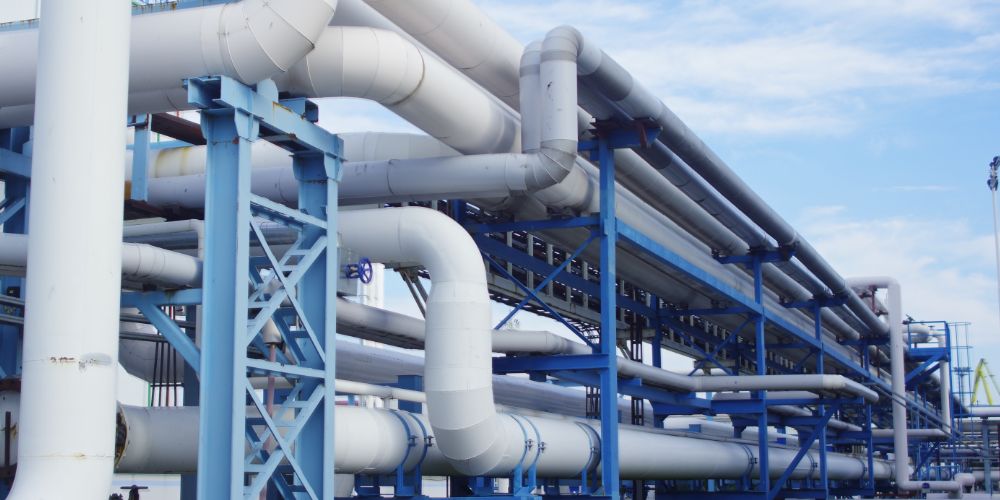
- March 20, 2025
Actualising Open Access to Oil Pipeline in Zambia.
The Governments of Zambia and Tanzania, jointly manage a 1,710km long TAZAMA Pipeline. TAZAMA (acronym of Tanzania and Zambian Mafuta (oil in Swahili) Authority) pipeline was built to overcome the Zambian oil crisis that emerged after the white settler community in Rhodesia (now Zimbabwe) issued a unilateral declaration of independence in 1964 and frustrated Zambia’s petroleum imports through their country. The pipeline runs from the Tanzanian capital of Dar-es-Salaam to Ndola, a hub of the Copperbelt Province of Zambia. The pipeline was built between 1967 and 1968 by the Italian national oil company, Ente Nazionale Idrocarburi (ENI).
Crude stock was transported through the pipeline for the exclusive purchase, refinery and wholesaling under the Government of the Republic of Zambia (GRZ) owned Indeni Petroleum Refinery (which was a 50-50 joint venture with Total of France). No Oil Marketing Company (OMC) was permitted to import the crude stock to feed into the pipeline.
Following years of Indeni Refinery plant decline as well as crude oil financing hurdles, a policy decision was made to transform the pipeline and enable it to transport “low sulphur gas oil” (LSGO). The conversion was successful and to facilitate OMCs to import LSGO. To facilitate this, GRZ through the Ministry of Energy and after consultation with stakeholders, approved “TAZAMA Pipeline Open Access Guidelines” (the Guidelines). From an efficiency view point, the previous monopoly of importation, refinery and wholesale under State control, while servicing some strategic public interest, was not sustainable and prone to mismanagement, corruption and created a barrier to development of a robust oil supply chain in Zambia. It is hoped that the implementation of these well-intentioned Guidelines shall not be marred by, among others:
- unfair, rigid or unpragmatic contract terms that may be included under paragraph 3.1 of the Guidelines;
- selection and registration process for OMCs to access the Pipeline under paragraph 4 of the Guidelines shall not be onerous in documentation, high in “registration fees”; prone to political patronage and undue time-wasting paper work;
- a “high powered” 9-member Evaluation Committee at paragraph 4.1.2, of which 3 must be employees of the Ministry of Energy. It is not clear from the Guidelines how the other 6 members shall be appointed, notwithstanding that 3 members from the same Ministry is a recipe for interference in the professional evaluation process in an “open access” regime;
- a bi-annual review of the Guidelines “and as and when required”, with the Ministry’s finger on the trigger as the key determinant of the review process under paragraph 7 of the Guidelines.
Otherwise, kudos to Zambia’s Energy Regulation Board (ERB), the OMCs and the Ministry of Energy for the Guidelines that are expected to foster competition, provide for effective and efficient use of the pipeline, and hopefully, facilitate sustainable availability of the LSGO.
So far, Zambia’s fragile roads to and from Tanzania in the north and to and from the ports of Beira and Durban in Mozambique and South Africa respectively, are lined with oil tankers hauling fuel into Zambia (including those proceeding to the Democratic Republic of Congo – DRC). It is not yet clear the extent to which Indeni is able to satisfy the local market, as well as take advantage of exports, if any, to the DRC, through the utilization of the pipeline.
While the open access Guidelines are in place, the test of the efficacy of the Guidelines will be seen in terns of the extent of application of the principle of “competitive neutrality” i.e., the fair, transparent, and non-discriminatory application of the Guidelines and notably, procurement process for both State-owned/managed actors and the private sector players. The competition law of Zambia binds the State to the same competition rules, insofar as the State or an enterprise owned, wholly or in part, by the State engages in trade or business for the production, supply, or distribution of goods or the provision of any service within a market that is open to participation by other enterprises.
It is therefore not surprising that the International Monetary Fund (IMF), reportedly in November 2024 included the implementation of the Guidelines as a key performance indicator with the Zambian Government. According to news reports, this primarily is aimed as ensuring that Indeni shall be subjected to competitive bidding process together with the private sector bidders.
With a nine-member evaluation committee having 3 members who are employees of the Ministry of Energy, with the tender drafting itself being undertaken by the Ministry of Energy itself, the actualization of competitive neutrality will be under the hawkish eyes of the IMF and the powerful OMCs.